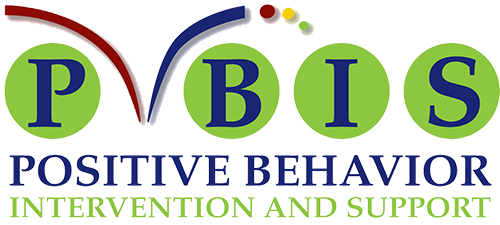PBIS
Information
Grijalva Elementary believes that high behavior expectations lead to high student achievement. Proper classroom behavior allows effective teaching and learning to occur. Clearly, managing and teaching correct behaviors leads to academic achievement. Grijalva Elementary School manages student behavior through a program called PBIS.
PBIS stands for Positive Behavioral Intervention and Support. It is a system used by Grijalva Elementary that supports your children by teaching them appropriate behaviors in school, and recognizes them for following expectations. When students struggle with making good choices, our staff implements several strategies that support students and allow them to learn effective behavior.
Grijalva has four main behavioral expectations:
• Be Respectful
• Be Responsible
• Be Safe
• Be Kind
PBIS stands for Positive Behavioral Intervention and Support. It is a system used by Grijalva Elementary that supports your children by teaching them appropriate behaviors in school, and recognizes them for following expectations. When students struggle with making good choices, our staff implements several strategies that support students and allow them to learn effective behavior.
Grijalva has four main behavioral expectations:
• Be Respectful
• Be Responsible
• Be Safe
• Be Kind
Grijalva Elementary helps to manage behavior using a comprehensive system called Multi-Tiered System of Supports (MTSS). Behavior support comes to students through three levels: universal support (Tier 1), secondary support (Tier 2), and tertiary support (Tier 3).
Tier 1 supports are those programs and procedures that apply to all students. Everyone who comes to Grijalva Elementary has their positive behavior taught and reinforced through PBIS tickets, cool tools, and other supports. Research shows that Tier 1 supports are adequate for 85-90% of students in the school.
For students who need support beyond Tier 1, Tier 2 gives students more individualized support based on their behavioral needs. These supports begin with a system called Check-In/Check-Out (CICO), a behavior monitoring tool. If more support is needed, additional behavioral interventions are added. This level of intervention should be enough support for 5-10% of students.
During school, students engaging in appropriate behavior receive compliment pages called PBIS Tickets. Students receive PBIS Tickets when they are “caught” following our school’s behavior expectations. PBIS Ticket drawings are held over morning announcements each morning. These allow the students to be positively recognized to the whole school.
Each month, if the school-wide goal of PBIS Tickers is met, the student body receives a prize in recognition of their success. This generally takes the form of a fun activity each month.
Each month, if the school-wide goal of PBIS Tickers is met, the student body receives a prize in recognition of their success. This generally takes the form of a fun activity each month.
Check-In / Check-Out (CICO) is the initial intervention on the Tier II level. It is a program designed to help students monitor their own behavior. Each student in the program receives a daily progress report (DPR) that is used to track their behavior throughout the school day according to three behavioral expectations. Teachers mark each section as either a 2, 1, or 0 during different time intervals throughout the day. At the end of the day, points are added up by the CICO coordinator, who monitors the entire check-in/check-out program.
When students have shown success as defined by the data rules, the coordinator recommends students for program exit; when students are consistently not meeting goals, the coordinator may suggest further intervention. A completion certificate will be provided for students who successfully reach their CICO goals.
When students have shown success as defined by the data rules, the coordinator recommends students for program exit; when students are consistently not meeting goals, the coordinator may suggest further intervention. A completion certificate will be provided for students who successfully reach their CICO goals.
Social Academic Instructional Groups (SAIG) are designed to teach students appropriate behaviors that will help them to be successful. Students that participate in this program are identified by daily progress monitoring (DPR) data as needing extra behavior support - these students may have been in CICO and still need more assistance.
Office discipline referrals give team members ideas of what behaviors need to be targeted (i.e. fighting, disrespect, leaving the room without permission, etc…)
Once the target behavior is identified, the SAIG Group facilitator creates lesson plans that will teach skills to help students become more successful. For example, if the target behavior is fighting, the lesson plan will teach problem-solving skills or anger management. If leaving the room without permission has become a problem, the SAIG lesson plan will teach ways to cope inside the classroom, rather than leaving (i.e. safety zone techniques).
Lesson plans are in a very easy-to-follow format. Describe the skill being taught, model non-examples, and practice the skill being taught (role-play). Groups run a consistent schedule so that any one student can be added at any time.
Another option for students who need additional support would be to continue to use CICO but to include individualized features. This may include the student checking in with several staff members throughout the day instead of just before and after school.
Office discipline referrals give team members ideas of what behaviors need to be targeted (i.e. fighting, disrespect, leaving the room without permission, etc…)
Once the target behavior is identified, the SAIG Group facilitator creates lesson plans that will teach skills to help students become more successful. For example, if the target behavior is fighting, the lesson plan will teach problem-solving skills or anger management. If leaving the room without permission has become a problem, the SAIG lesson plan will teach ways to cope inside the classroom, rather than leaving (i.e. safety zone techniques).
Lesson plans are in a very easy-to-follow format. Describe the skill being taught, model non-examples, and practice the skill being taught (role-play). Groups run a consistent schedule so that any one student can be added at any time.
Another option for students who need additional support would be to continue to use CICO but to include individualized features. This may include the student checking in with several staff members throughout the day instead of just before and after school.
A Functional Behavior Assessment (FBA) is completed as a part of the problem-solving process. This helps the team to create a Behavior Intervention Plan (BIP) to support the student in school. The most challenging behavior is targeted, and a plan is centered around how to help support the student in that area. The plan is typically monitored for 4-6 weeks, and the team then revisits the plan to make changes as needed.
In the rare cases when it is necessary, students may receive further intervention at Tier 3, which works with individual students and their families. Research says that 5% or less of students will reach this level of support.
Grijalva Elementary wants every student to be successful; we realize we must teach correct behavior and support students by giving them several chances to learn and understand the school’s behavior expectations.

Links





